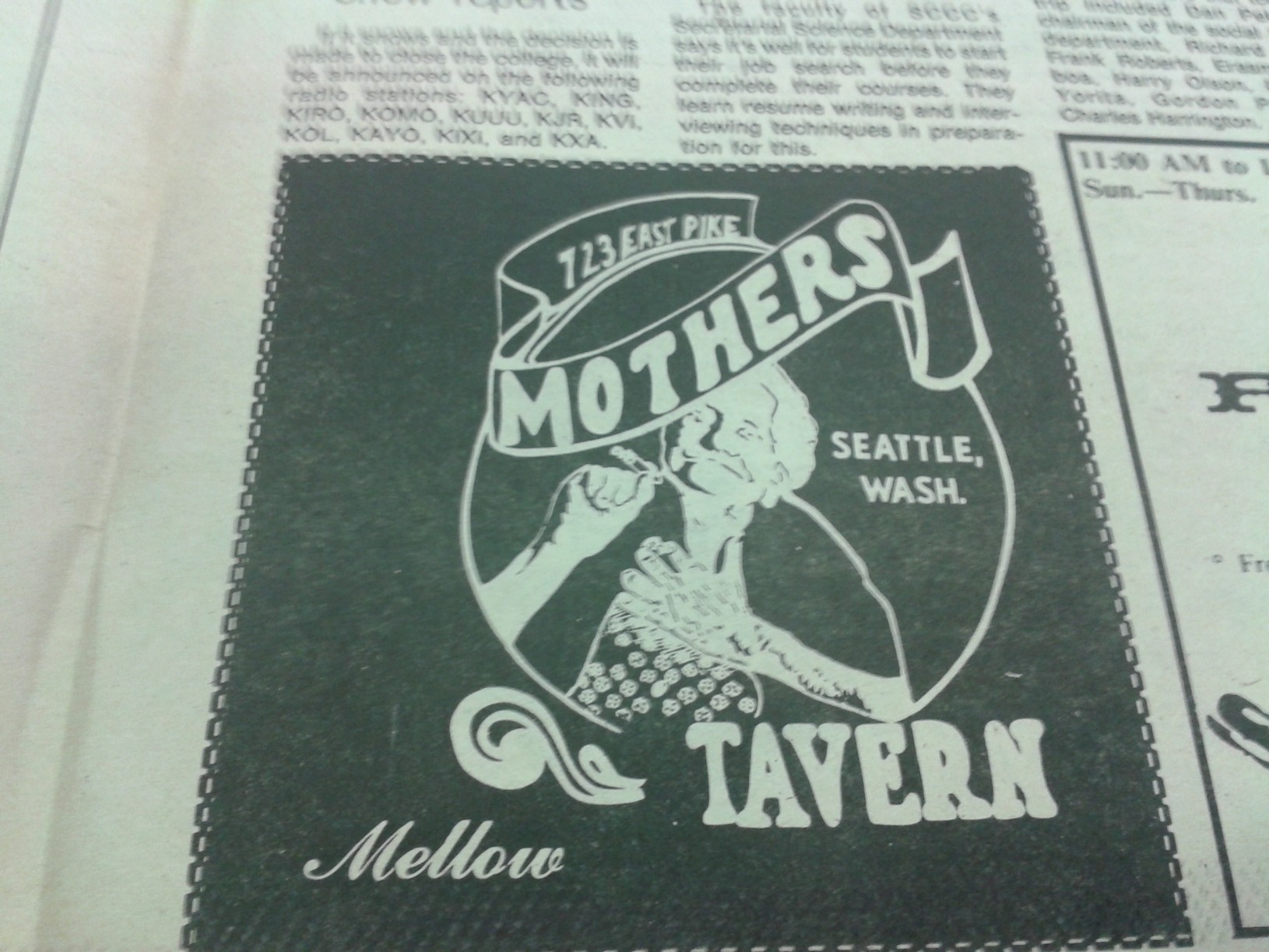 An ad from an old New City Collegian (Image: NCC)
An ad from an old New City Collegian (Image: NCC)
As 300-unit apartment projects are erected and tunnels are bored the history of Capitol Hill is slowly buried, but two teachers at Seattle Central Community College are determined to bring that history back through “The Power of Community.” They are going to need your help to do it.
“I’m worried that I’ll have to cancel the CSP (class) due to low enrollment,” says Dean of Humanities, Kenneth Lawson. “‘ll likely be making a decision early next week.” The outgoing dean says the course has the, “potential to teach students research and writing skills in a highly relevant and interesting way.
A new course at Seattle Central called “The Power of Community” has been a project “seven years” in the making says Tracy Lai, a SCCC English Teacher. The class will survey the history of Seattle Central from its starts as a technical school in 1966 to now and explore the school’s connection with the Capitol Hill community.
“Capitol Hill has shaped what SCCC has become,” Lai said, explaining that observing history in the community is integral to the new class. Students will get a chance to build that history by adding to the campus archives themselves by conducting, “oral history interviews.” In addition to exploring the founding of the school, it will also follow the cultural and political influences of the Hill.
History teacher Bruce McKenna says that the class will culminate with a “demonstration day” when students will present their original research to the community. McKenna adds that students will conduct original interviews and learn about the “racial (and societal) history of Capitol Hill and the Central District” in application to Seattle Central. He hope the community will attend the event and get engaged in local history.
The course will examine the “college’s close connections to the African American and Asian American communities,” says Lai and explore popular student movements and Hill politics that have swept down the Broadway Boulevard from Asian student protests in 1971 to WTO.
A lot of the information for the course will come from a somewhat unusual teaching aid. “It has to be part (of the course),” say Lai of The City Collegian, Seattle’s first community college paper. The school library currently holds an extensive archive containing hundreds of Collegians all the way from the first edition in October of 1966 to its end as an official publication in 2008 and provides the “most ongoing continuity” of news for SCCC and Capitol Hill says Lai. From ads for 19 cent hamburgers at Dick’s to the first play put on by the school’s drama program in ’66, the archives tell many stories that are slowly fading away.
A product of the course for each student will also be a research paper on a facet of Hill history.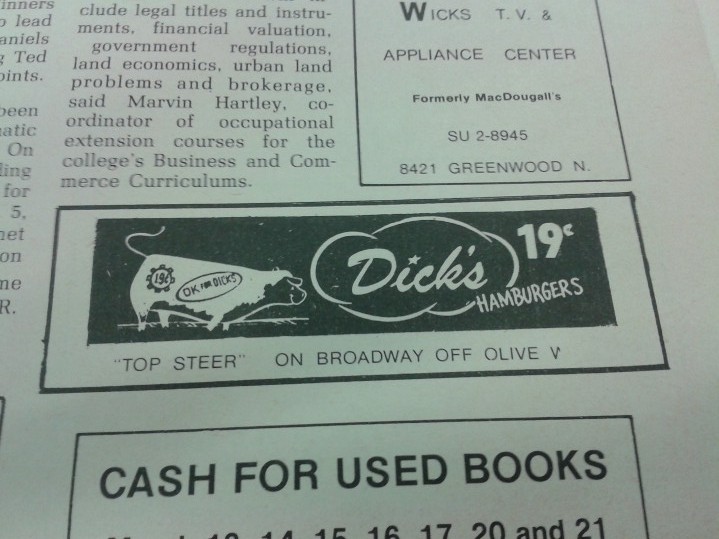
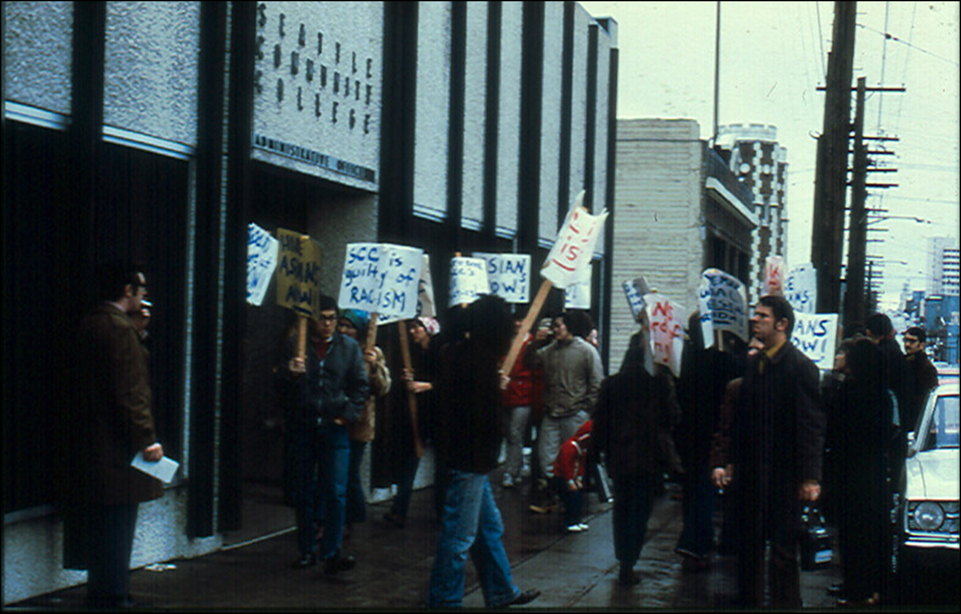 A protest picture from the New City archives (Image: NCC)
A protest picture from the New City archives (Image: NCC)
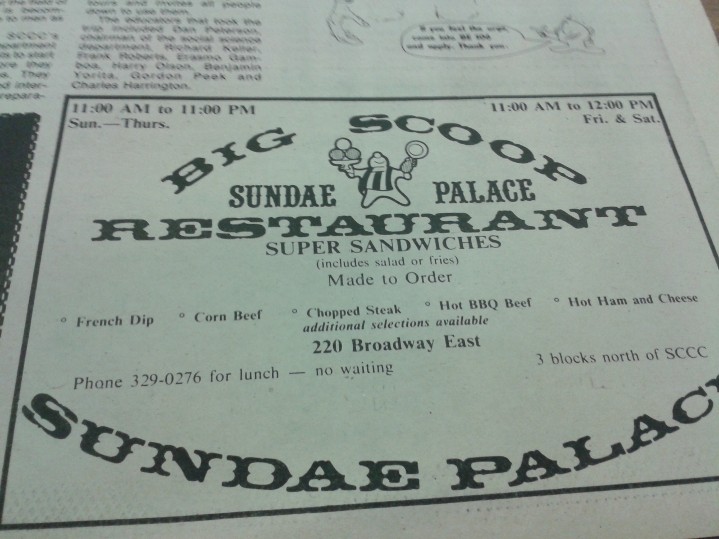 Ultimately Lai hopes to stimulate independent learning, and through history discover, “why Seattle Central is doing what they’re doing.” Should the class gain steady enrollment it may become a readily available course and allow all residents of the Hill to learn about their roots.
Ultimately Lai hopes to stimulate independent learning, and through history discover, “why Seattle Central is doing what they’re doing.” Should the class gain steady enrollment it may become a readily available course and allow all residents of the Hill to learn about their roots.
Sebastian Garrett-Singh is Executive Editor of New City Collegian a student-run continuation of The City Collegian (Seattle’s oldest community college newspaper) based out Seattle Central Community College and is a writing tutor on campus.



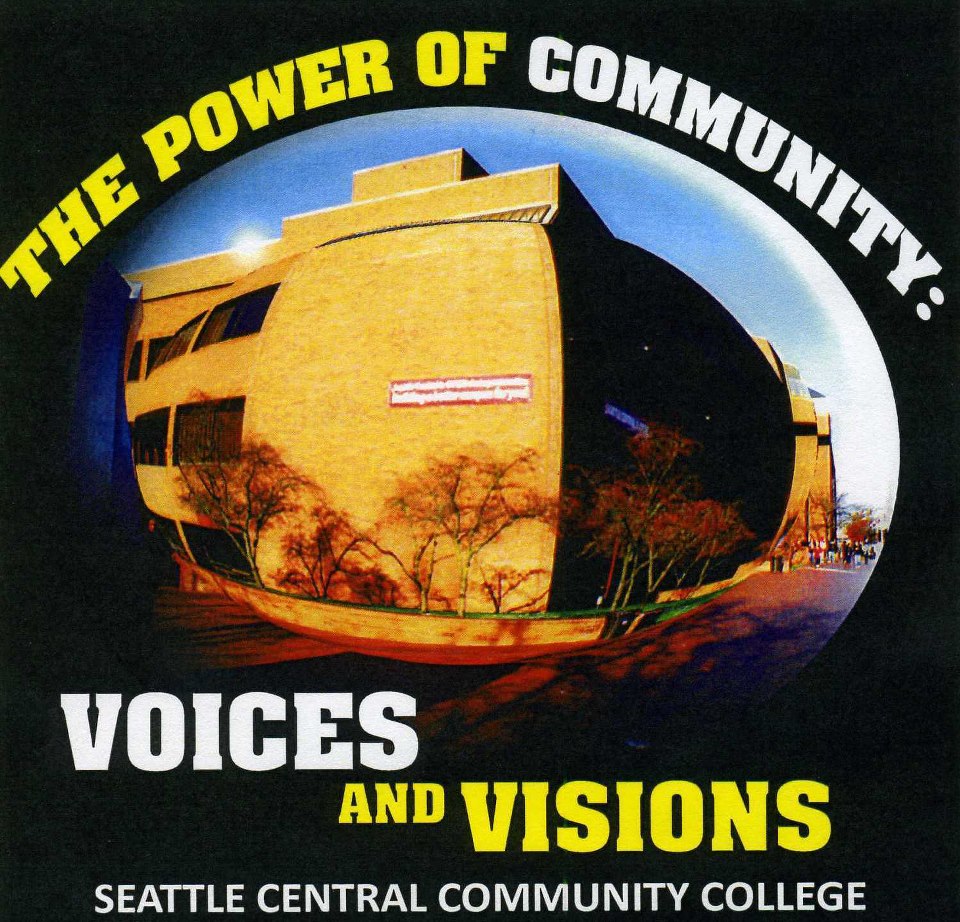
Why don’t they offer a programming class at night? You know something useful?
I was a SCCC technical student in 1970. It was a most exciting time to be a student there. The average age of the student body was 27. The newly formed Seattle Community College District planned to build NSCC and SSCC and close Seattle Central. The U.S. invaded Cambodia. Many of the students were Viet Nam vets, others were “welfare Moms” and it was a very lively, very diverse group. The City Collegian archives are a treasure, especially coupled with the Broadway High School archives which are also housed at SCCC. SCCC stayed (and that itself is quite a story), bought surrounding buildings (including the Masonic Temple where the Egyptian is located and the Booth Building across the street where Cornish began and later the Seattle Academy of Art. We organized child care facilities with the early childhood programs of the college. The Broadway Performance Hall was built. SCCC is an amazing resource, provides a continuous educational presence in a location that was dedicated to education in the very early 1900s, and both the technical and college parallel programs continue (with less than needed support). I wish folks success with this course and will certainly attend the finale if I know when and where it is to be held.